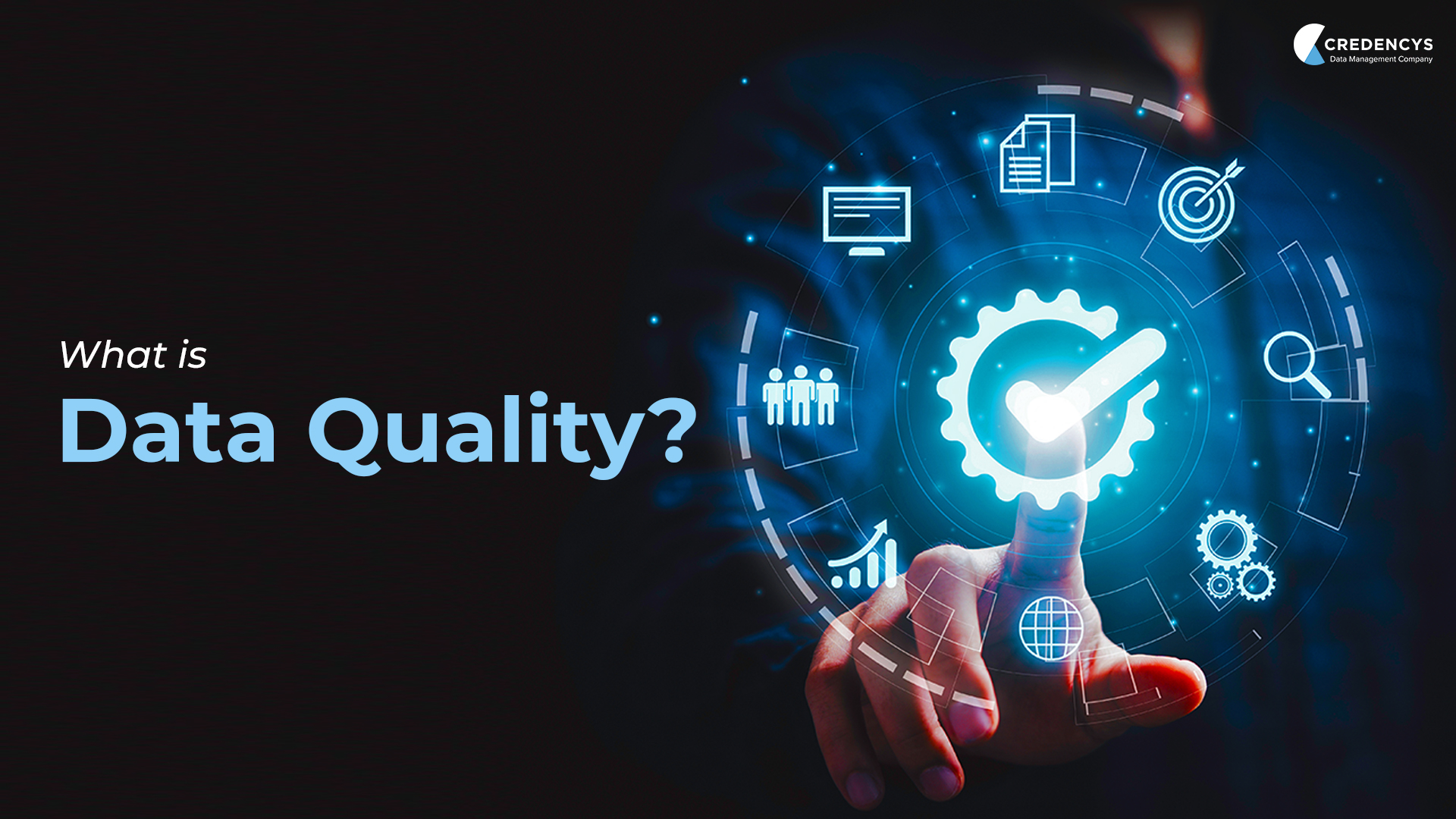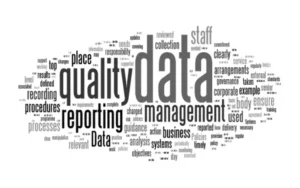Focus on Data Quality: The Foundation of Reliable Insights and AI Success
Introduction
In today’s data-driven world, organizations rely on data to power decisions, fuel machine learning models, personalize customer experiences, and drive innovation. However, the value of data is only as good as its quality. Poor data quality can mislead decision-makers, waste resources, damage reputations, and even create regulatory risks. In fact, a Gartner report estimates that bad data costs organizations an average of $12.9 million annually.
This makes data quality not just an IT concern but a critical business priority. Whether it’s ensuring accuracy, consistency, completeness, or timeliness, focusing on data quality is essential for achieving trusted analytics and successful digital transformation.
This article explores the importance of data quality, its key dimensions, challenges, best practices, and the role of emerging technologies in ensuring data reliability.
What is Data Quality?
Data quality refers to the degree to which data is accurate, consistent, complete, and usable for its intended purpose. It’s not a single metric but a multidimensional concept that varies depending on context. For example, customer data used for marketing must be up-to-date and complete, while healthcare data must be precise, standardized, and compliant with regulations.
High-quality data ensures that businesses make confident, reliable decisions. On the other hand, poor-quality data leads to misinterpretation, inefficiencies, and financial losses.
Why Data Quality Matters
-
Better Decision-Making
Decisions based on inaccurate data can derail business strategies. Reliable data enables leaders to confidently plan, forecast, and respond to market changes. -
AI and Machine Learning Accuracy
AI systems depend on large datasets for training. If the input data is biased or flawed, the model’s predictions will also be flawed — the classic “garbage in, garbage out” problem. -
Customer Trust and Satisfaction
Customers expect organizations to maintain accurate records. Incorrect details can lead to poor customer experiences, billing errors, and a loss of trust. -
Operational Efficiency
Clean, consistent data reduces redundancies, minimizes errors, and streamlines workflows across departments. -
Regulatory Compliance
Regulations like GDPR and HIPAA require businesses to maintain data accuracy, integrity, and protection. Poor quality increases the risk of fines and reputational harm.
Key Dimensions of Data Quality
Data quality is assessed across several critical dimensions:
-
Accuracy – Is the data correct and reflective of reality?
Example: A customer’s address must match their actual residence. -
Completeness – Is all required information present?
Example: Missing contact numbers in customer databases can disrupt communication. -
Consistency – Does the data remain uniform across different systems?
Example: A customer’s name should not appear differently in marketing and billing systems. -
Timeliness – Is the data up-to-date and available when needed?
Example: Financial data must be current for compliance and auditing purposes. -
Validity – Does the data follow defined business rules and formats?
Example: Dates should not appear in the format “13/31/2025.” -
Uniqueness – Is there any duplication?
Example: Multiple entries of the same customer create confusion and waste. -
Reliability – Can stakeholders trust the data to be accurate over time?
Each dimension highlights how data can either empower or obstruct business goals.
Challenges in Maintaining Data Quality
Despite its importance, organizations often struggle with data quality. Some common challenges include:
-
Data Silos
When data is scattered across different departments and systems, inconsistencies and duplication arise. -
Human Errors
Manual data entry mistakes, incomplete forms, or misclassified information are common causes of bad data. -
Rapid Data Growth
With the explosion of big data, IoT devices, and real-time streams, maintaining accuracy and consistency is harder than ever. -
Lack of Standardization
Different formats, terminologies, and structures lead to inconsistencies. -
Integration Issues
Merging data from multiple sources without proper governance creates reliability problems. -
Changing Regulations
Organizations must adapt their data strategies constantly to meet compliance requirements.
The Cost of Poor Data Quality
The consequences of ignoring data quality can be severe:
-
Financial Losses – Incorrect forecasts, misallocated budgets, and wasted marketing efforts drain resources.
-
Reputation Damage – Customers lose trust when data mistakes affect their experiences.
-
Operational Inefficiency – Employees waste time reconciling errors instead of focusing on value-driven tasks.
-
Legal Penalties – Non-compliance with data privacy laws leads to hefty fines.
For instance, in 2017, a major credit bureau faced massive reputational and financial damage due to data inaccuracies and breaches, showcasing the real-world impact of poor data quality.
Best Practices for Ensuring Data Quality
1. Establish Data Governance
Data governance is a framework of rules, processes, and responsibilities for managing data quality. It ensures consistency, accountability, and alignment with business goals.
2. Define Clear Data Standards
Organizations should define rules for data entry, formatting, validation, and usage to reduce errors.
3. Implement Data Quality Tools
Modern software solutions can automate cleaning, deduplication, and validation of data.
4. Conduct Regular Data Audits
Periodic reviews help identify errors, outdated information, and gaps in the system.
5. Train Employees
Human error is a major contributor to poor data quality. Educating employees about best practices reduces mistakes.
6. Foster Collaboration Across Departments
Breaking down silos ensures that data remains consistent across the organization.
7. Leverage Metadata
Metadata helps track the origin, context, and history of data, boosting reliability and traceability.
Role of Technology in Data Quality
Technological advancements play a vital role in maintaining high data standards:
-
Artificial Intelligence and Machine Learning
AI-powered tools can detect anomalies, identify duplicates, and even predict potential errors before they occur. -
Data Quality as a Service (DQaaS)
Cloud-based platforms offer scalable solutions for cleansing and enriching data without heavy infrastructure investments. -
Blockchain for Data Integrity
Blockchain ensures tamper-proof, auditable data records, enhancing trust in sensitive industries like finance and healthcare. -
Real-Time Data Validation
IoT and streaming platforms rely on real-time validation to ensure timely and accurate decision-making.
Case Studies: How Data Quality Transforms Businesses
Case 1: Healthcare
Hospitals rely on accurate patient records for treatment and compliance. Implementing data quality frameworks reduces duplicate records and ensures better patient care.
Case 2: E-Commerce
An online retailer used AI-driven data cleaning to correct customer profiles. The result? Improved personalization and a 20% boost in sales conversions.
Case 3: Banking and Finance
A bank facing compliance penalties invested in a robust data governance model. Within a year, errors decreased significantly, and audit processes became smoother.
Future of Data Quality
The future of data quality will be shaped by:
-
Automated, AI-driven quality checks that adapt dynamically to evolving data.
-
Self-healing systems capable of detecting and correcting anomalies in real time.
-
Greater emphasis on ethical data practices to reduce bias and ensure fairness.
-
Integration with DataOps methodologies for continuous monitoring and improvement.
As data continues to expand in volume, velocity, and variety, organizations that focus on data quality will hold a distinct competitive edge.
Final Thoughts
Data is often referred to as the new oil, but without proper refining — in this case, data quality management — it is useless. Reliable data ensures accurate decision-making, effective AI, satisfied customers, and regulatory compliance.
Organizations must recognize that focusing on data quality is not a one-time task but an ongoing commitment. By building strong governance frameworks, leveraging modern tools, and promoting a culture of data ownership, businesses can unlock the full value of their data assets.
In a world where insights drive innovation, data quality is the true foundation of success.
https://bitsofall.com/https-yourwebsite-com-improved-understanding-of-language-models/






